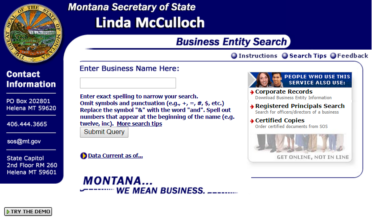How to Land Your Dream Business Administration Jobs

Business Administration Jobs is the management and oversight of a company’s operations and procedures. It involves planning, organizing, staffing, directing, and controlling various business functions and overseeing day-to-day business activities.
Professionals in business administration work in a wide variety of industries and organizations. They ensure operations run smoothly and work towards the company’s overall goals and objectives.
Common business administration job titles and roles include:
- Operations Manager – Oversees the day-to-day activities and supervises staff.
- General Manager – Manages overall operations and strategy.
- Office Manager – Oversees administrative tasks, procedures, and supplies.
- Management Analyst – Identifies ways to improve efficiency and reduce costs.
- Project Manager – Plans and coordinates projects and team members.
- Human Resources Manager – Oversees recruiting, training, payroll, and benefits.
- Accounting/Finance Manager – Manages financial reporting, budgeting, and audits.
Business administration professionals have strong leadership, organizational, analytical, and communication skills. They must be able to juggle multiple responsibilities, work well under pressure, and make decisions that impact the organization. Many specialize in a particular area like human resources, operations, finance or marketing.
Typical Job Duties
Business administration jobs involve a wide range of responsibilities that keep companies and organizations running smoothly. Some of the most common duties and tasks include:
Administrative Tasks
- Managing office operations – ordering supplies, maintaining records, overseeing mail distribution, and coordinating maintenance and repairs.
- Preparing budgets, monitoring expenditures, and analyzing financial data.
- Developing administrative policies, procedures, and workflows.
- Ensuring compliance with regulations and legal requirements.
Managing Operation
- Overseeing daily activities and implementing best practices for efficiency.
- Coordinating projects and company initiatives.
- Providing leadership and guidance to various departments.
- Identifying areas for improvement and proposing solutions.
Overseeing Personnel
- Recruiting, hiring, training, and evaluating staff.
- Implementing human resource policies and procedures.
- Resolving employee relations issues and conflicts.
- Ensuring workplace safety and compliance with labor laws.
Developing Strategies
- Researching and analyzing data to guide business decisions.
- Setting performance goals and benchmarks.
- Forecasting future needs and challenges.
- Creating plans for growth, expansion, and contingencies.
Skills Needed
To succeed in business administration jobs, certain skills are absolutely critical. Here are some of the most important:
Leadership
Strong leadership ability is essential for business administrators, as they are often managing teams, overseeing operations, and guiding strategy. Excellent leaders can motivate and inspire their employees, make tough decisions, and foster collaboration. Many top business administration roles like CEO require demonstrated leadership experience.
Communication
With business administration jobs involving constant collaboration and stakeholder management, communication skills are vital. Verbal and written communication skills allow business administrators to effectively interact with employees, clients, executives, and more. They must be able to give clear direction, provide feedback, make persuasive presentations, and create reports.
Analytical Thinking
Analysis and problem-solving are key in business administration, as administrators must make data-driven decisions and develop solutions. Strong analytical thinkers can synthesize complex information, weigh pros and cons, think critically, and strategize for the future. Mathematical and reasoning abilities are important here.
Organization
Juggling multiple responsibilities, projects and teams requires excellent organizational skills. Top business administrators are able to prioritize tasks, manage time efficiently, and stay focused and productive. The organization helps them execute plans systematically, track progress, and avoid mistakes.
Popular Career Paths
Some popular career paths for those with a business administration degree include:
Office Manager
Office managers oversee administrative tasks and coordinate the operations of an office. Their duties may include supervising administrative staff, maintaining office efficiency, purchasing supplies, and ensuring office policies are followed. Office managers need strong organizational, communication, and leadership skills.
Executive Assistant
Executive assistants provide high-level support to executives by handling information flow and performing clerical and administrative tasks. They organize schedules, take notes at meetings, make travel arrangements, and help with presentation materials. Executive assistants should be highly organized, discreet, and able to work independently.
Operations Manager
Operations managers direct and oversee the daily activities of a company or organization. They implement policies, monitor processes, analyze data, and find ways to maximize efficiency and profitability. Operations managers should have strong analytical and leadership abilities.
General Manager
General managers have overall responsibility for managing a company or division. They oversee operations, set goals, manage staff, control budgets and expenses, and make major decisions. General managers need excellent interpersonal, analytical, and decision-making skills to succeed.
Salary and Job Outlook
Business administration jobs encompass a wide range of roles across various industries, but on average they offer competitive salaries and strong job growth projections.
The average salary for business and financial operations occupations in 2020 was $82,000 per year according to the Bureau of Labor Statistics. However, salaries can vary significantly based on the specific job role, level of experience, education, certifications, and industry.
Some of the highest-paying business-for-sale administration career paths include:
- Financial managers – $134,180
- Sales managers – $132,290
- Computer and information systems managers – $161,730
- Administrative services managers – $96,940
- Operations research analysts – $86,200
The industries with the highest employment levels and wages for business administration professionals are:
- Finance and insurance
- Professional, scientific, and technical services
- Manufacturing
- Government
Employment of business and financial operations occupations is projected to grow 7.8 percent from 2020 to 2030, adding about 704,300 new jobs according to the Bureau of Labor Statistics. Business administration roles in fields like management analysis, human resources, and financial analysis are expected to see strong demand.
The job outlook remains positive for most business administration careers due to factors like globalization, a complex regulatory environment, and the need for organizations to maximize efficiency and profits. Business graduates with well-rounded skill sets remain in high demand.
Education Requirements
A bachelor’s degree is typically required for most business administration jobs. Common majors include business administration, management, finance, marketing, accounting, economics, and information systems. However, some roles may only require an associate’s degree.
Popular bachelor’s degrees for business administration careers include:
- Bachelor of Business Administration (BBA)
- Bachelor of Science in Business Administration (BSBA)
- Bachelor of Arts in Business Administration (BABA)
These programs cover core business topics like management, marketing, finance, accounting, human resources, operations, and more. Students gain analytical, communication, leadership, and problem-solving skills.
Many high-level management or executive positions require a master’s degree, such as:
- Master of Business Administration (MBA)
- Master of Science in Management
These provide advanced training in business strategy, analytics, leadership, and specialized concentrations like marketing, finance, or human resources. An MBA is one of the most popular master’s degrees for business professionals.
Certain business administration jobs may also require or prefer professional certifications like:
- Project Management Professional (PMP)
- Certified Public Accountant (CPA)
- Chartered Financial Analyst (CFA)
- SHRM Certified Professional (SHRM-CP)
Certifications demonstrate expertise in specialized areas and can give job candidates a competitive edge. They are commonly required for accountants, financial analysts, project managers, and human resource professionals.
Getting Started
The best way to get started in a business administration career is to earn a bachelor’s degree in business administration, accounting, finance, marketing, human resources, or a related field. An undergraduate business degree provides a solid educational foundation and core business skills needed for many entry-level roles.
While in school, gain relevant experience through internships at companies that interest you. Look for opportunities to apply classroom concepts in a real-world setting. An internship allows you to develop skills, build your resume, network, and potentially get a full-time job offer.
Common entry-level positions for business administration graduates include management trainee, sales associate, financial analyst, human resources assistant, operations coordinator, and administrative assistant. Entry-level jobs provide on-the-job training and allow you to learn the ins and outs of a particular organization or industry. With proven work experience, you can then advance to higher roles with more responsibility.
Joining professional associations, attending job fairs, building connections, and effectively marketing yourself are also key strategies for launching a business administration career after college. Consider earning an MBA a few years into your career to open up additional leadership and management opportunities. Overall, laying a strong educational foundation and gaining hands-on experience will position you for success in the dynamic field of business administration.
Advancement Opportunities
Business administration jobs offer many opportunities for advancement, especially in management and leadership roles. With experience and proven success, professionals can progress to positions like department manager, regional manager, director, vice president, and eventually senior executive roles like Chief Operating Officer or Chief Executive Officer.
Continuing education can also open doors to advancement. Many companies offer tuition reimbursement programs that support employees who pursue MBAs or other advanced degrees. These programs allow people to gain new skills and knowledge while working, prepping them to take on greater responsibilities. Attending seminars, conferences, and training programs are other ways to build expertise for advancement.
Leadership development programs are another route to higher positions. These selective programs provide training in areas like strategy, finance, marketing, and people management. Participants get exposure to senior leaders, often take on stretch assignments, and build relationships with peers who will become the next generation of executives. Graduates are better prepared to handle management roles.
The most important factor for advancement is a track record of success in current roles. Top performers tend to get noticed and promoted more quickly. Key skills like communication, relationship-building, critical thinking, and business acumen can set people apart. With drive and ability, professionals in business administration can progress well up the corporate ladder over the course of a career.
Work Environment
A business administration career offers a wide variety of potential work environments. Many entry-level jobs are in office settings, such as human resources, accounting, marketing, and operations. Professionals in these roles generally work typical weekday hours, though longer hours may be required to meet deadlines or finish special projects.
Higher-level management and executive positions often involve more responsibilities and longer hours spent in the office and in meetings. Travel may also be required to visit regional offices, and clients, or attend conferences and events. Those in upper management generally have greater control over their schedules but also face heavier workloads and pressure for results.
While much business administration work takes place in an office, some roles require site visits and fieldwork depending on the industry. Healthcare administrators may spend time at hospitals and clinics, while hospitality managers work onsite at hotels and resorts. Regardless of the specific environment, business administration professionals at all levels interact frequently with various stakeholders like employees, clients, vendors, regulators, and the public.
Job Satisfaction
Business administration jobs offer a high level of job satisfaction for many professionals. Some of the key factors that contribute to job satisfaction in this field include:
Challenging Work
Business administration roles tend to involve complex problem-solving, strategic thinking, and data analysis. Professionals must find innovative solutions to business challenges. This intellectually stimulating work provides a sense of challenge and achievement. Tackling new projects and learning new skills can prevent boredom and burnout.
Good Salary
Salaries for business administration jobs are competitive. With the right experience and qualifications, professionals can earn a comfortable living. Salary potential tends to increase with career advancement and specialization. Many employers also offer bonuses and other financial incentives.
Upward Mobility
There are abundant opportunities to take on more responsibility and move up to higher-level roles. Large companies in particular have extensive management hierarchies where driven professionals can climb the corporate ladder. Gaining new skills, certifications and education can unlock promotions. The potential for career growth keeps motivation and engagement high.





